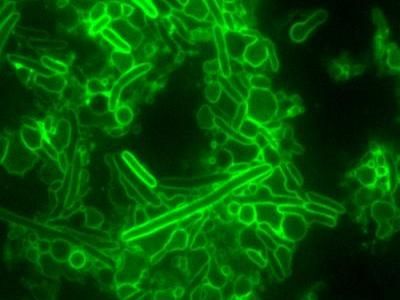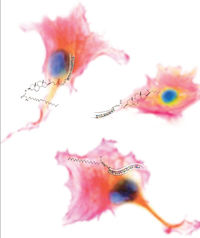Ipsat Announces Positive Clinical Trial Results for the Prevention of Serious Infections Associated with Antibiotic Resistance
Advertisement
Helsink - Ipsat Therapies, focused on developing products to prevent the spread of serious infections associated with antibiotic therapy and resistance, today presented positive Phase I clinical trial data for its lead product, P1A, at the BioPartnering Europe Conference in London. This product fulfils many of the criteria for fast track development by the FDA.
Antibiotics have long been associated with infections, and bacterial resistance leading to the spread of infections. Commonly known resistant pathogens resulting in these serious infections are Methicillin Resistant Stapholococcus aureus, Clostridium difficile, Vancomycin Resistant Enterococci (VRE) and other gram negative bacteria, as well as aggressive yeasts such as Candida glabrata. The annual cost for treating antibiotic resistance infections is approximately $30 billion in the USA alone.
More recently the intestine has been identified as the main source of resistant bacterial strains due to the increased level of bacterial diversity and opportunity for prolonged exposure to antibiotics. Ipsat has now demonstrated that exposure to antibiotic in the intestine causes a depletion of natural microflora and the selective pressure for resistant strains to develop. The problem is compounded in hospitals where containment increases the risk of spread of hospital acquired infections1 and thus the mortality rate.
Ipsat's product is an oral formulation, designed to inactivate beta-lactam antibiotics2 in the lower intestine, post absorption into the serum. These studies demonstrated the product could successfully remove all non-absorbed, harmful antibiotic residue from the lower intestine without interfering with therapeutic levels in serum and therefore maintaining efficacy. An excellent safety profile and efficacy was demonstrated in all patients treated with the product.
Marion Carson, Managing Director at Ipsat, commented on the results:
"Decreased investment in the development of new antibiotics in the last ten years has led to a reduction in the number of new antibiotics entering the market, therefore the current goal of the healthcare industry is to prolong the efficacy of existing therapies. Our goal at Ipsat is to extend the utility of current antibiotics and remove the widespread problems associated with resistance and serious infections, often fatal in a growing elderly population, and in hospitals."
Ipsat's studies showed that after only three days of exposure to antibiotics, more than 40% of the intestine's microflora are altered and some bacterial strains developed clear resistance to the antibiotic. This was evident also at the genetic level. These changes were seen to last for the duration of antibiotic use and lasted for more than two weeks. The Company has demonstrated in a mouse model that the presence of antibiotics is necessary for intestinal colonisation by VRE, ESBL-Klebsiella pneumoniae and Candida glabrata. Ipsat has also shown in pre-clinical in vivo studies that all these changes are prevented by removal of non-absorbed antibiotic residue from the intestine. The next stage will be a Phase IIa study to evaluate the efficacy of its lead product to prevent antibiotic-induced pathological changes in humans.
Ipsat Therapies was granted a licence by the National agency of Medicines in Finland on July 7th 2003 for the GMP production and release of its product for upcoming clinical trials.




























































